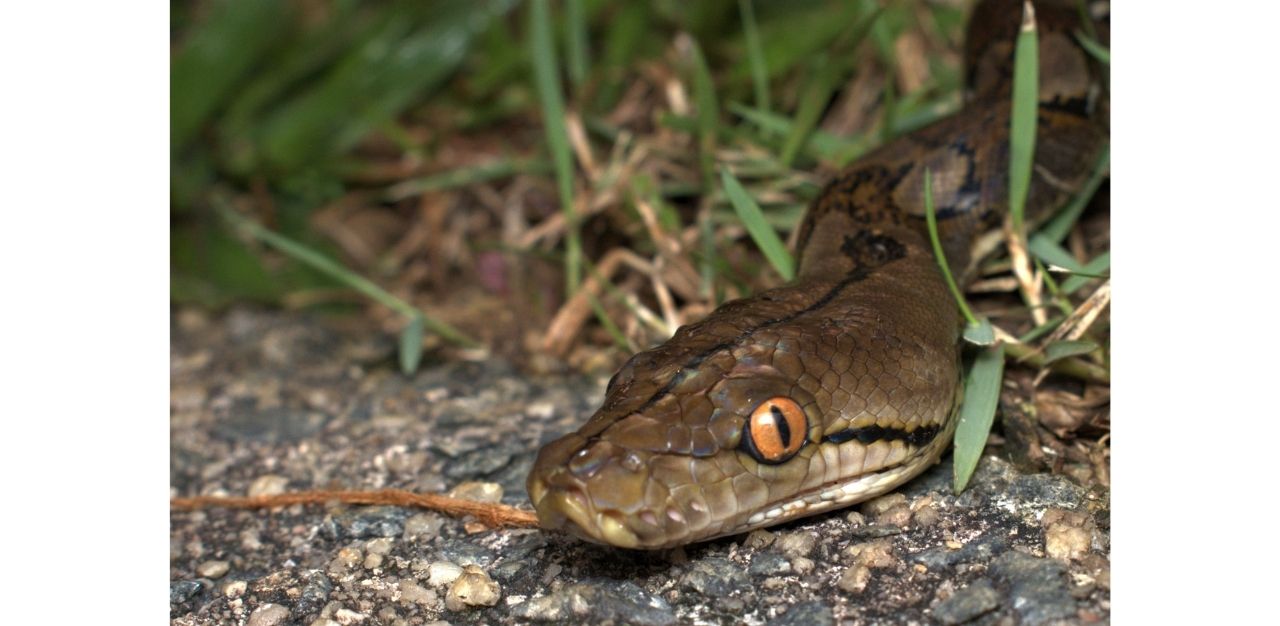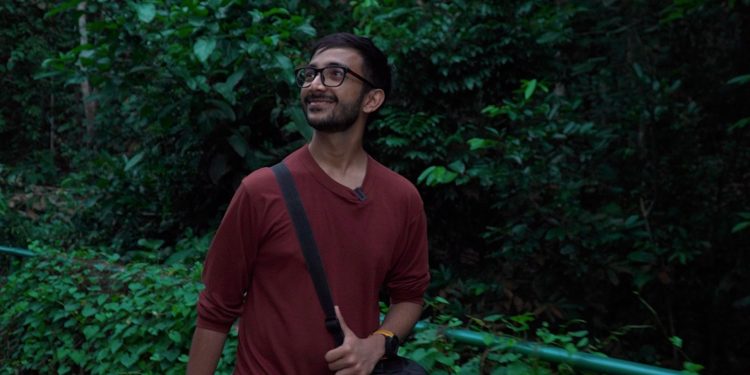From The Jungle Book’s Kaa to Harry Potter’s Nagini, snakes have not enjoyed the best image in human literature and media. But Sankar Ananthanarayanan is seeking to repeal their undeserved bad name in Singapore — which, in fact, is home to an incredible diversity of reptiles and amphibians.
“Herpetology is the study of reptiles and amphibians,” says Mr Sankar, whose passion for herpetology began during his National Service (NS) days.
Shortly after, he and a few friends founded the volunteer-run society, which is dedicated to the conservation of these creatures, the education of the public, and the research of reptiles and amphibians — “a very misunderstood group of animals”, he says.
“Generally, people tend to think that they are scary and unnecessary in our daily lives, but actually, it’s a very good thing that we have so many of them here in Singapore because they are a form of biological pest control — something we hope more people in Singapore can appreciate,” adds Mr Sankar, who is now a full-time teaching assistant at the National University of Singapore’s College of Humanities and Sciences.
Being a tropical island, Singapore is a biodiversity hotspot — something that few Singaporeans are even aware of.
“Pasir Ris park is a place that is very important to me because that’s where I fell in love with reptiles and amphibians,” says Mr Sankar. “This kind of quiet beauty is something that people don’t really pay attention to, because it exists underneath the boardwalk inside the mud. But when you slow down and look at it, like what Kinetic was able to do, there are some really beautiful moments [to capture] there.”
Join TheHomeGround Asia on a stroll down Old Upper Thomson Road with our local reptile hobbyist and find out more about where our fear of these creatures stems from, the human-wildlife conflict that arises because of it, and what we can do to ease these conflicts.
TheHomeGround Asia (THG): How did you start getting into “herping”?
Sankar Ananthanarayanan (SA): I first started herping when I was about 20 years old, when I was serving my National Service (NS). At that time, I was very bored and had a lot of free time, so I signed up for this project that a friend’s friend was working on — he was studying the mud snakes of Pasir Ris Park. They actually brought me here, to Old Upper Thomson Road where we walked along looking for snakes. This was in 2014. It was a very fun experience and that’s how I got hooked.
THG: What is your favourite reptile or amphibian, and why?
SA: My favourite reptile in Singapore is probably the reticulated python. This is the longest species of snake in the entire world, and I studied it for my final year project when I was at the National University of Singapore (NUS).

The cool thing about them is that they are found all over Singapore, even in urban places. So, they actually are a form of biological pest control, helping to get rid of disease-spreading rats in our urban spaces.
But when people encounter them, they scream or run, usually a result of this culture of fear.
THG: Where do you think this culture of fear comes from?
SA: I guess the fear of snakes is a well-established fear in humanity. So, to overcome that is very hard, especially when there’s no education around it growing up. We do intrinsically have some wariness of things we think can hurt us. But I also think a lot of this fear is learnt from our parents, our friends, the people around us, the community that we grow up in.
There are entire communities that have a relationship with snakes that differ from our relationship with them. A good example would be the Irulas in Tamil Nadu. I think they are a group of people who are very closely linked to snakes. In fact, they were very heavily engaged when a herpetological community in South India was being built. So not all communities are afraid of these animals. But we are afraid of them because we aren’t exposed to them.
When we do outreach and we bring families to see, for example, a giant monitor lizard, the kids are never the ones afraid of these animals. It’s always the parents who are holding their kids back. That’s smart, I guess, but at the same time, you can also see where we get our apprehension of these animals from. It comes from the communities that we grew up in.
THG: Is there a reason to actually fear snakes? Are they actually dangerous to humans?
SA: I think any wild animal can be dangerous, just like any person could be dangerous if they are put under the right — or should I say, wrong — situations. But a snake doesn’t want to hurt you. There’s no species of snake that actively wants to hunt humans. They are just trying to live their lives.
It’s usually because they are being persecuted in some way — chased, or they are forced into a corner, that they feel the need to defend themselves. That’s when you have cases of human-wildlife conflict.
THG: Human-wildlife conflicts seem to be an increasingly frequent problem in Singapore. Is there a reason for this?
SA: Singapore was not built with biodiversity in mind. It has historically been very wildlife-unfriendly by design. And you can see that because there are many cases of people and animals alike being negatively affected by urban planning.
For example, we have a road that is in between two forest patches and this is not something that the animals are prepared for, and as a result, we see a lot of roadkills. Sometimes, it’s not very easy to quantify that impact, especially for reptiles and amphibians. Many of them get run down by cars, but we don’t really know how often that happens.
People don’t report when a snake or frog gets run over, because people don’t really care for these animals as much as they do a monkey or a wild boar. Those mammals are big and furry, and we feel a sense of connection to them because we are also mammals. It would be almost like seeing a person lying on the road. We don’t have that same sense of kinship with reptiles and amphibians. So, very often, if the roadkill is a reptile or amphibian, it is completely underreported and we have no idea what impact these kinds of developments could have on them.
THG: What, then, can the public do to help?
SA: The HSS is actually running a citizen science project where we invite members of the public to submit records of reptile and amphibian roadkill. If you see a dead snake on the road that has been run over by a car, you can just take a photo, grab your GPS location and submit it to a publicly available link that we have.
It also helps to know what species are especially prone to this. Some species may like to busk on the road because the concrete is warm. What reptiles are more prone to this? We don’t know. What spaces are these more likely to happen in? We don’t really know either. In order to answer those questions, we need people to submit data.
THG: Finally, what message would you like to leave our readers — particularly budding herpetologists out there?
SA: I definitely didn’t know a lot when I first started out, and I definitely still have a lot more to learn. And I think this is true, pretty much of the whole of our society — we are all on various parts of our learning journeys. So it’s very nice to see that everyone is passionate about sharing with one another and the wider public about these really interesting animals.
Ultimately, you are in charge of your own learning journey, so you can take efforts to actually make your own knowledge of biodiversity better. You can go for walks, or join us for a free guided walk if slots are available — they fill up very quickly!
In fact, once you have gained this knowledge, you are in a unique position of educating other people around you, and that’s a very valuable gift to give.
Click here to report roadkill of amphibians and reptiles in Singapore.
Join the conversations on TheHomeGround Asia’s Facebook and Instagram, and get the latest updates via Telegram.












